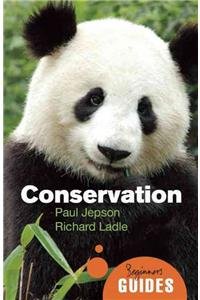Only logged in customers who have purchased this product may leave a review.
Sale!
Environment and Sustainability in a Globalizing World (Paperback) | Released: 09 Apr 2019
By: Andrea Nightingale (Author) Publisher: Routledge33.00% Off Original price was: 4,813.00$.3,224.00$Current price is: 3,224.00$.
You save 1,589.00$
From the Foundations in Global Studies series, this student-friendly text follows a two-pronged approach to help readers understand the globalizing processes relating to environment and sustainability, which are examined in a range of disciplines, including environmental studies, geography, global studies, political science, international affairs, comparative politics, and other disciplines. First,... Read More
In stock
Ships within 1-2 Business Days

100% Orginal Books

Easy Replacement

Certified product

Secure Checkout

On time delivery
Author:
![]()
Andrea Nightingale
Publisher Name:
![]()
Routledge
Language:
![]()
English
Binding:
![]()
(Paperback)
About The Book
From the Foundations in Global Studies series, this student-friendly text follows a two-pronged approach to help readers understand the globalizing processes relating to environment and sustainability, which are examined in a range of disciplines, including environmental studies, geography, global studies, political science, international affairs, comparative politics, and other disciplines. First, it presents foundational material that gives students the conceptual underpinnings required for rigorous analysis. Following the Introduction and Overview, Part One presents a brief historical overview of the concerns revolving around environmental sustainability in the modern era. The text then covers key concepts and theoretical constructs that define the global context for sustainable environmental practices, such as the key thinkers and theories pertaining to sustainable environmental practice, and the key international agencies and treaties involved in global discussions. The first part then explores the various models and ways to measure sustainability, the range of environmental domains at play in the sustainability dialogue, and the controversies surrounding them. Part Two employs case studies to examine theory and practice at work in particular situations. The case studies have been selected with an eye toward comprehensiveness of coverage across disciplines and across regions.About the Author: Andrea J. Nightingale is a Professor in the Department of Sociology and Human Geography at the University of Oslo. She has been Chair of Rural Development in the Global South at the Swedish University of Agricultural Sciences and a Professor II at Noragric, Norwegian University of Life Sciences.Tom Bhler, Ph.D., teaches human ecology at the School of Global Studies at the University of Gothenburg in Sweden. His teaching focuses on what todays mainstream processes of sustainable development in rich consumer societies like Sweden can learn from perspectives such as critical post-humanism (sustainability and trans-species egalitarianism), political ecology (natural resources, power and [in]justice); ecological economy (sustainability and the endurance of natural resources), economic democracy (sustainability and collective ownership), and political ontology (sustainability and pluralism of ontologies). Ben Campbell is senior lecturer in the Department of Anthropology, Durham University, UK, and directs the MSc in Sustainability, Culture and Development. He is co-chair of the Low Carbon Energy for Development Network. His research focuses on poverty, livelihoods, and resources in Nepal; on innovation among mountain indigenous communities; on the impacts of environmental conservation on local institutions of common property management; and on energy transitions from fuelwood use to biogas at high altitudes. His publications include Living between Juniper and Palm: Nature, Culture and Power in the Himalayas (Oxford University Press, 2013), and "Communities of Energy," (Economic Anthropology, 2016). Linus Karlsson is a PhD student at the Department of Urban and Rural Development at the Swedish University of Agricultural Sciences. His research interests include critical agrarian studies, the politics of land use, state formation, and state-citizen relations. In particular, he focuses on how regime shifts in land-use governance generate new conflicts over public authority and rights in resources. In his research, he moves between the fields of geography, anthropology, sociology, and postcolonial theory.










Reviews
There are no reviews yet.